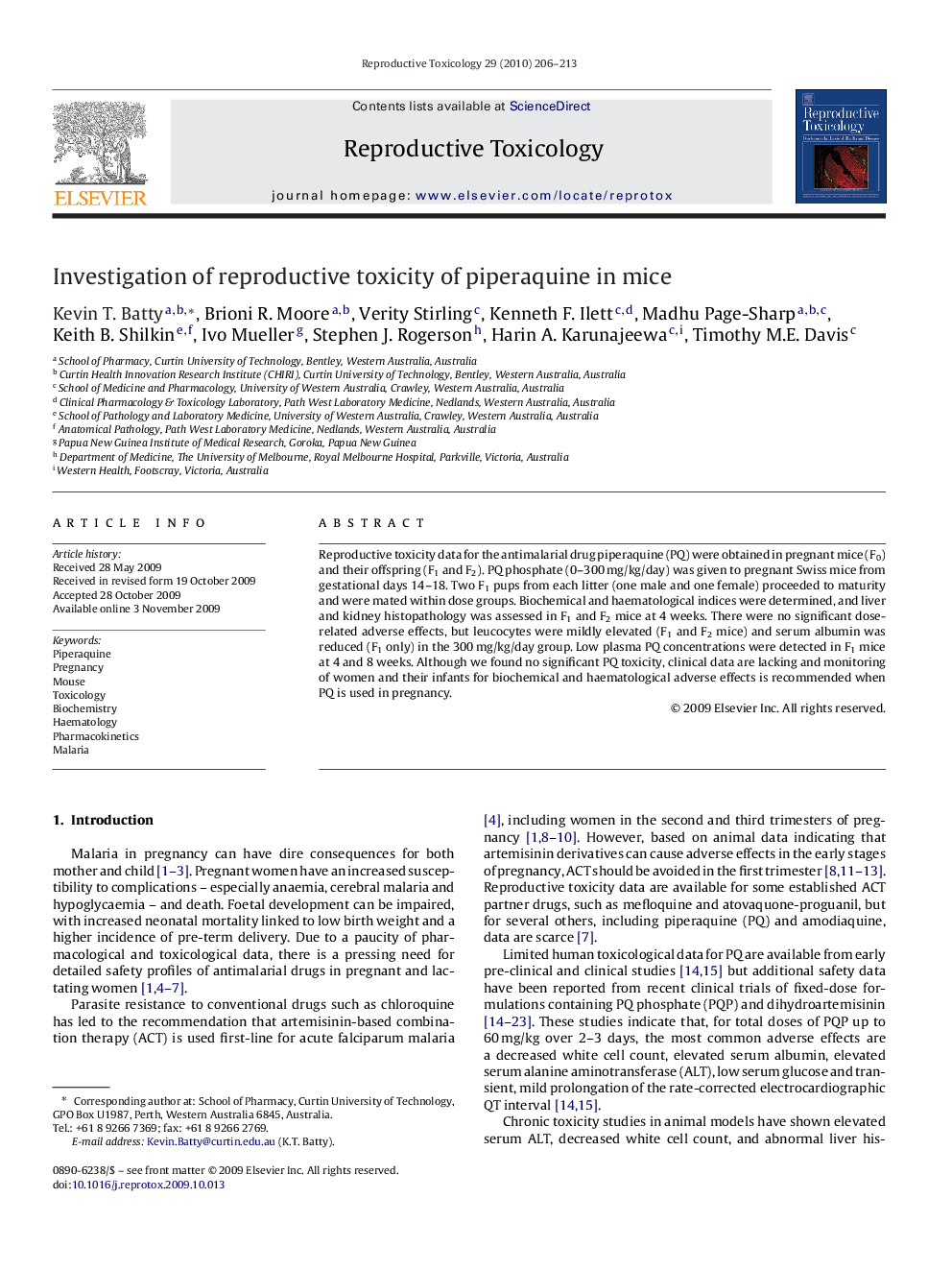| Article ID | Journal | Published Year | Pages | File Type |
|---|---|---|---|---|
| 2594275 | Reproductive Toxicology | 2010 | 8 Pages |
Reproductive toxicity data for the antimalarial drug piperaquine (PQ) were obtained in pregnant mice (F0) and their offspring (F1 and F2). PQ phosphate (0–300 mg/kg/day) was given to pregnant Swiss mice from gestational days 14–18. Two F1 pups from each litter (one male and one female) proceeded to maturity and were mated within dose groups. Biochemical and haematological indices were determined, and liver and kidney histopathology was assessed in F1 and F2 mice at 4 weeks. There were no significant dose-related adverse effects, but leucocytes were mildly elevated (F1 and F2 mice) and serum albumin was reduced (F1 only) in the 300 mg/kg/day group. Low plasma PQ concentrations were detected in F1 mice at 4 and 8 weeks. Although we found no significant PQ toxicity, clinical data are lacking and monitoring of women and their infants for biochemical and haematological adverse effects is recommended when PQ is used in pregnancy.
